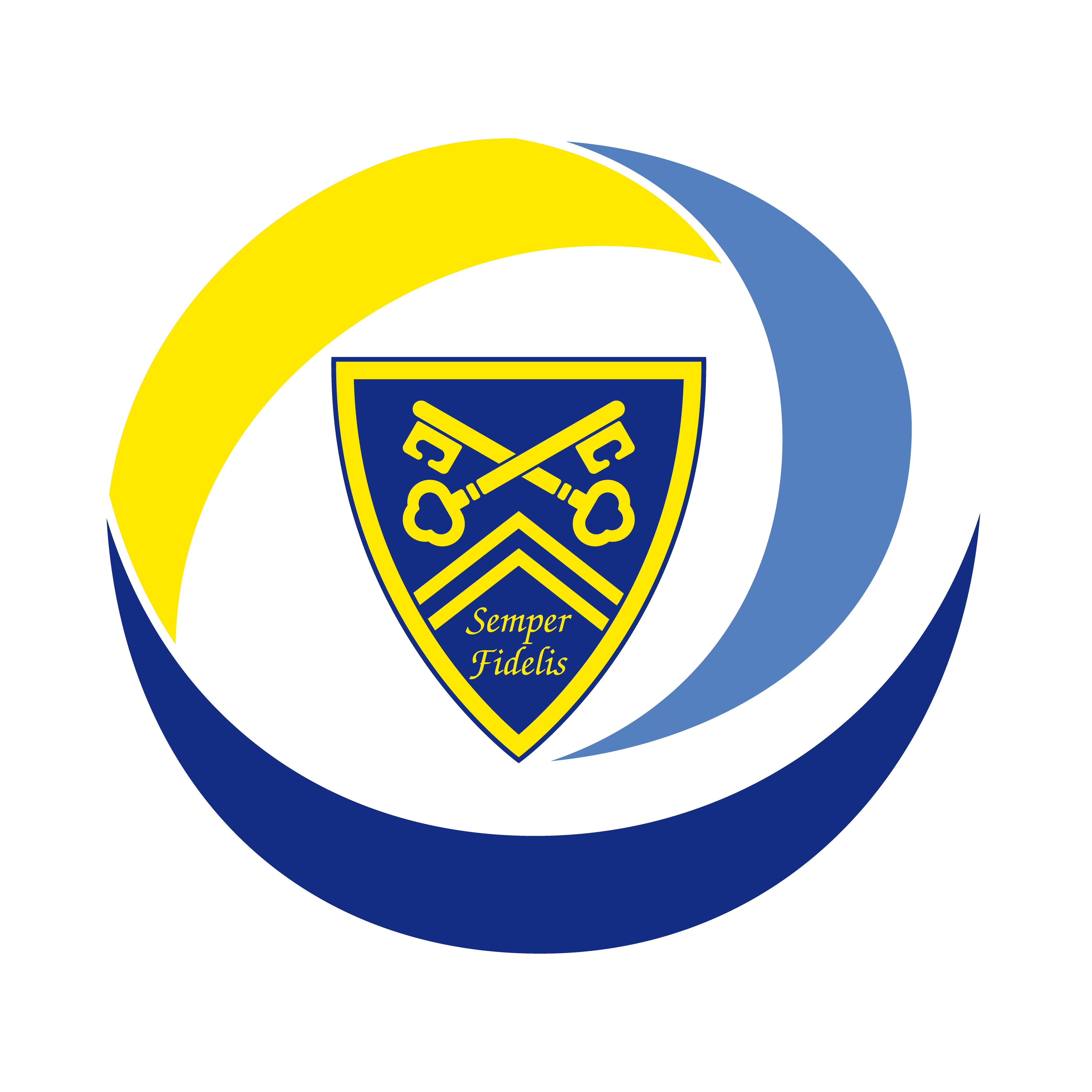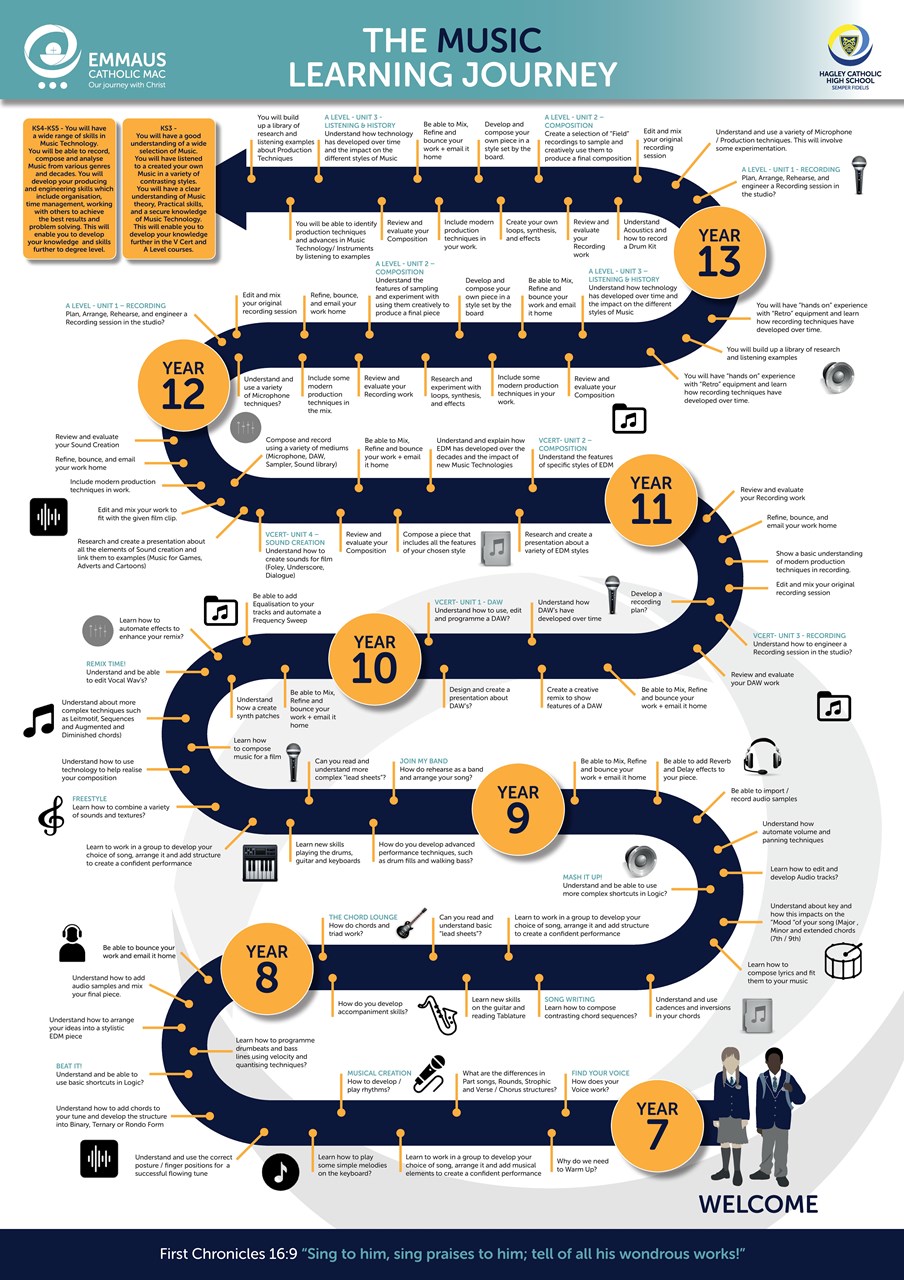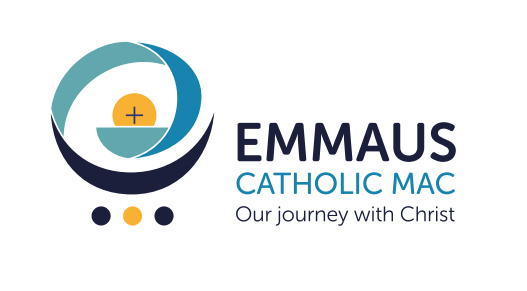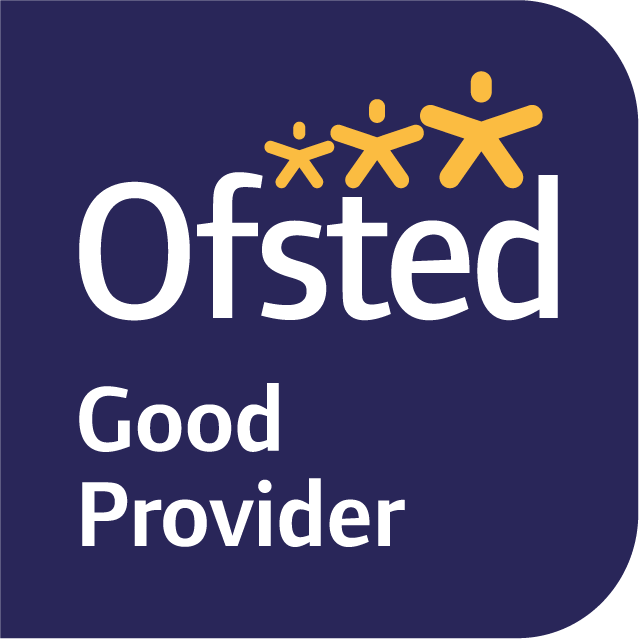Our Music Department
The Music Team
- Mr F Mallinson – Subject Leader for Music - fmallinson@emmausmac.com
- Mr C Smith –Teacher of Music - csmith@emmausmac.com
- Mrs C Foster – Teacher of Music (P/T) - cfoster@emmausmac.com
- Mr C Handley - Technician - chandley@emmausmac.com
To view the curriculum mapping document and the 'learning journey' poster for Music, then please click on the links below. If you have any queries then please contact the Subject Leader.
Subject Overview
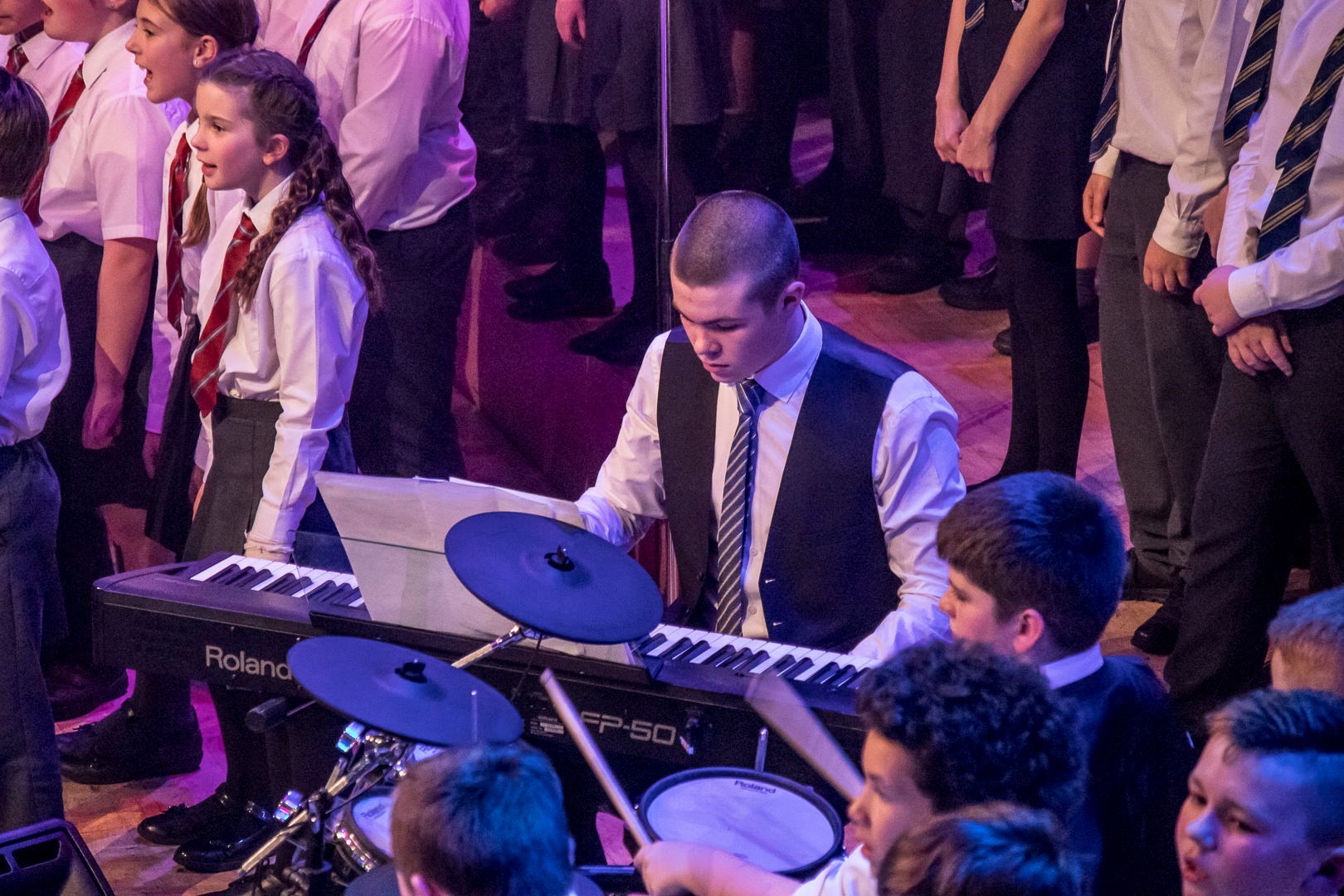
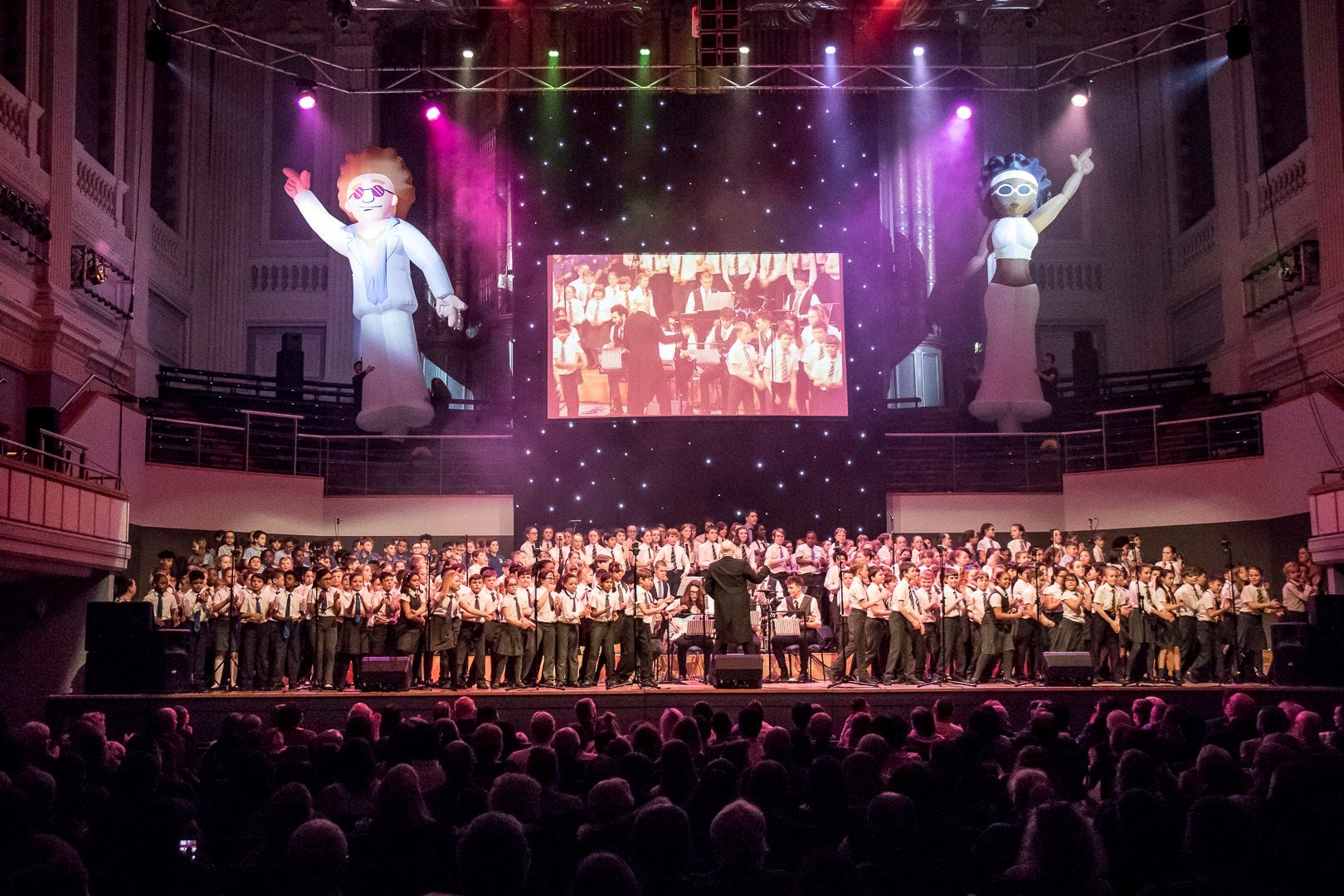
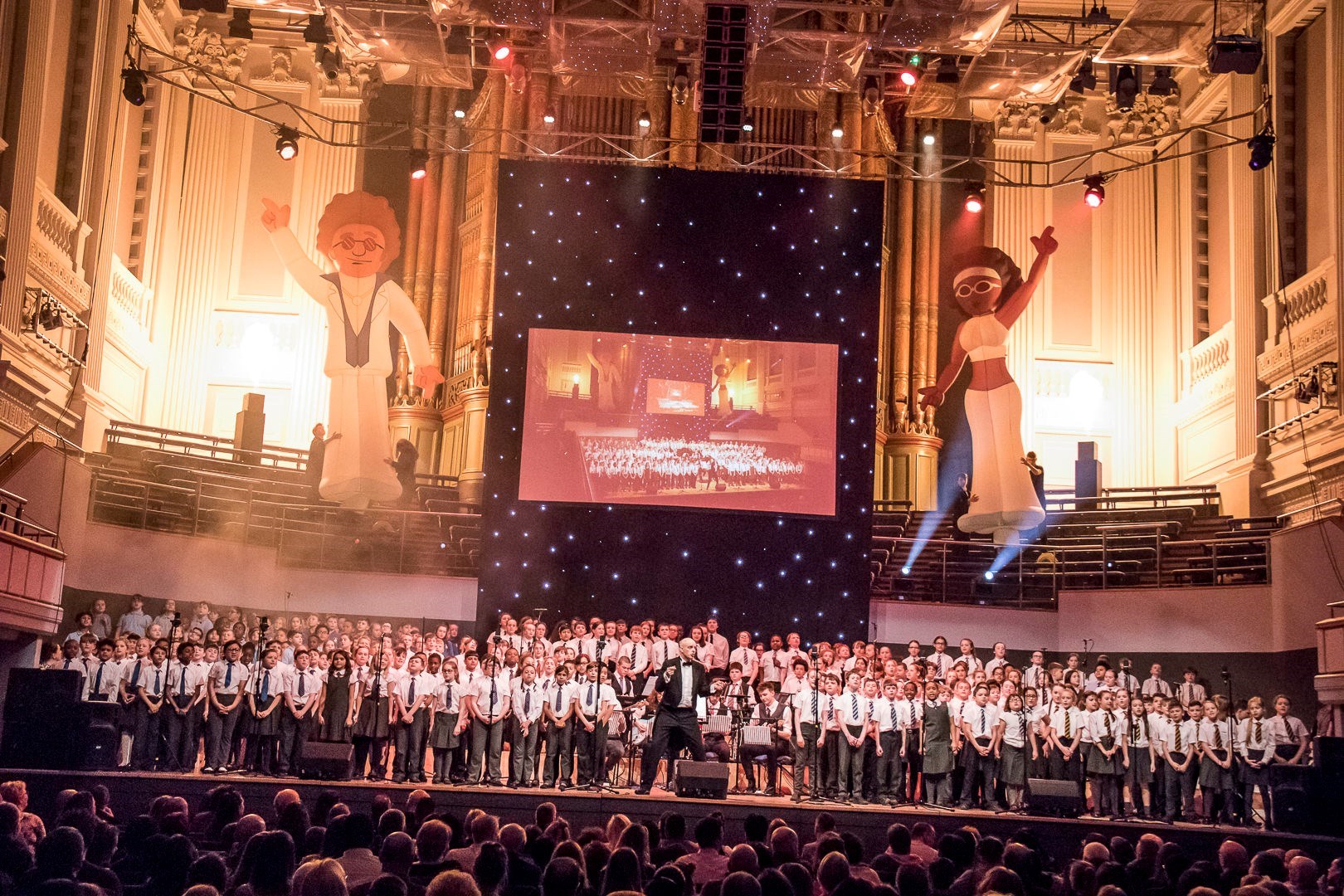
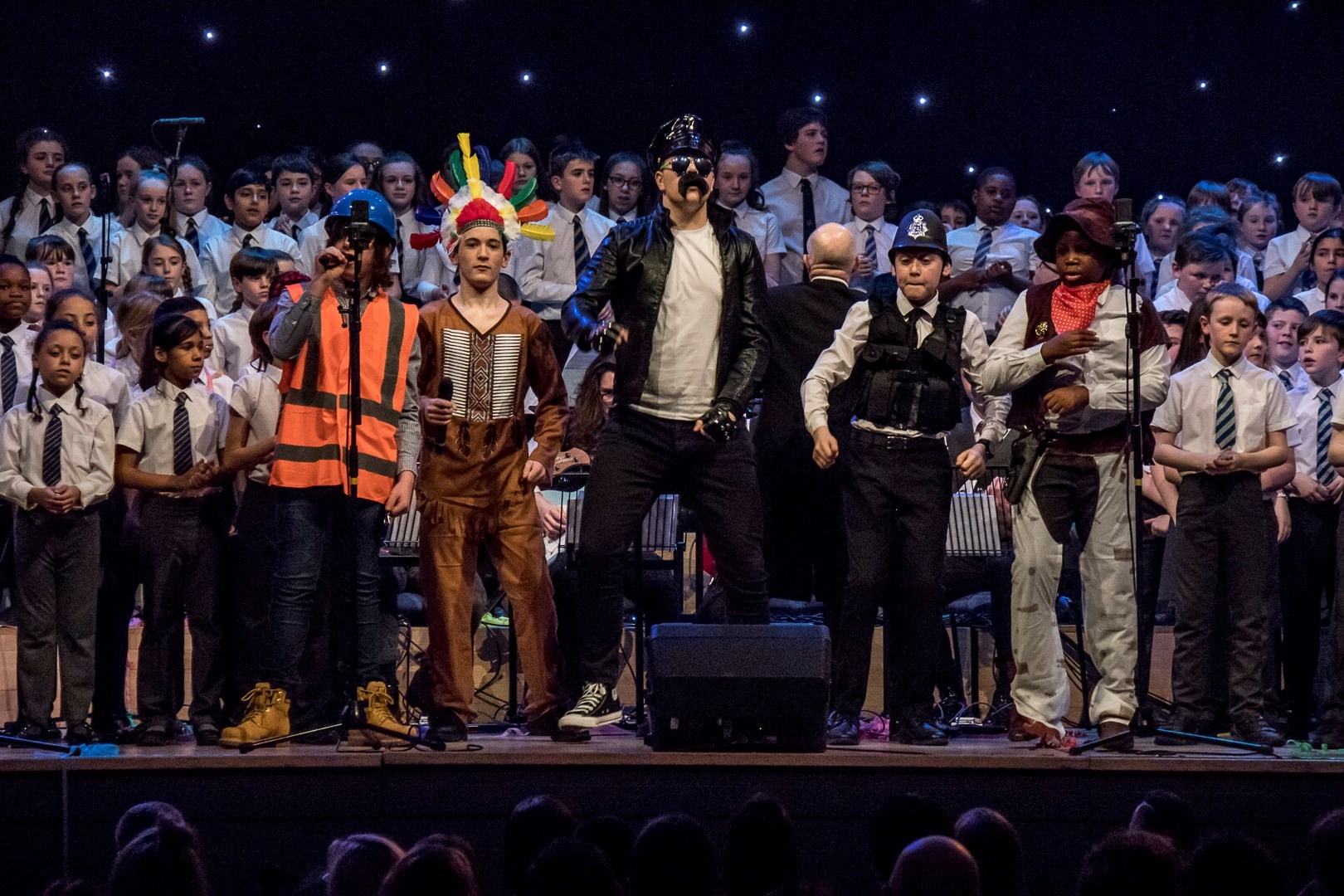
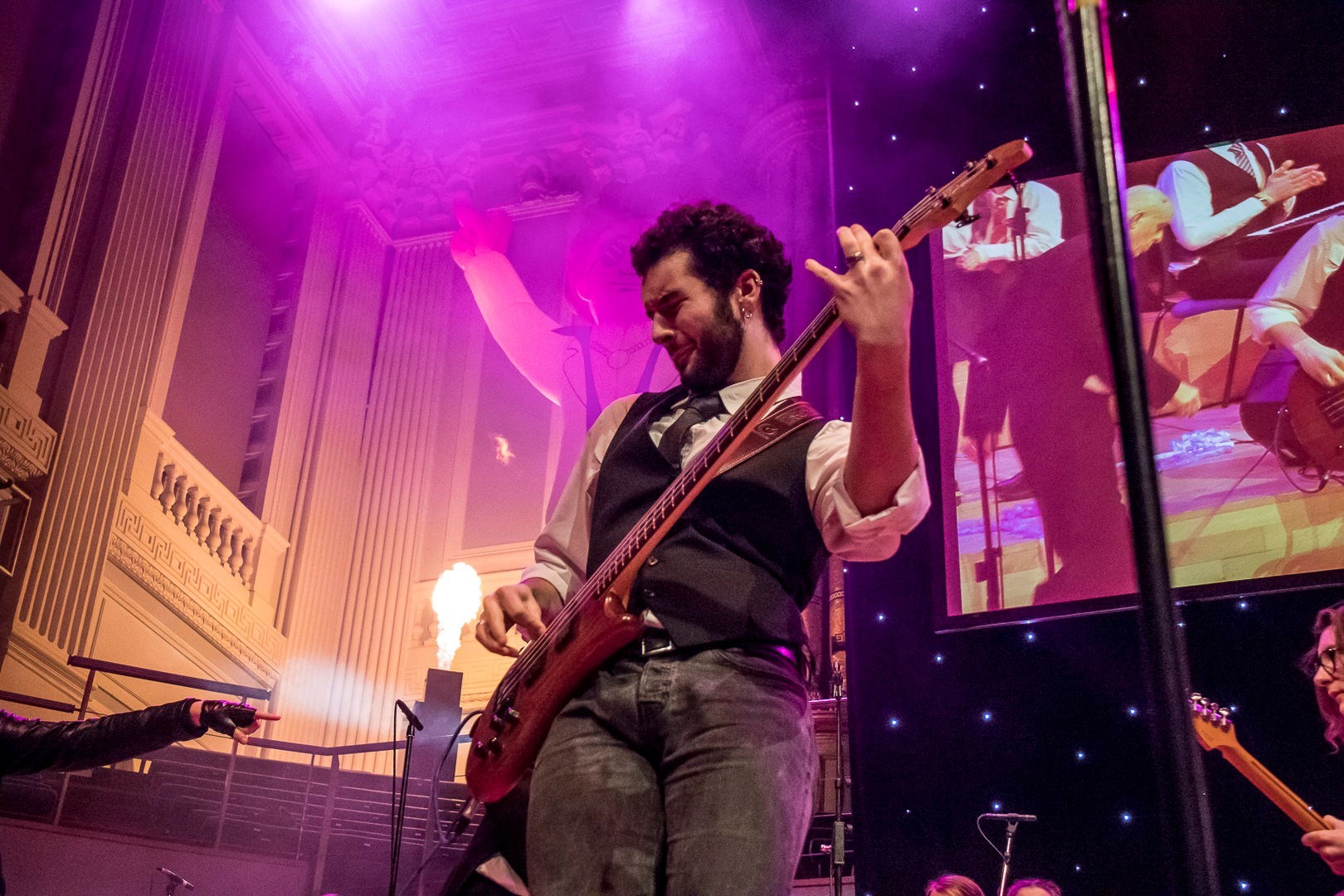
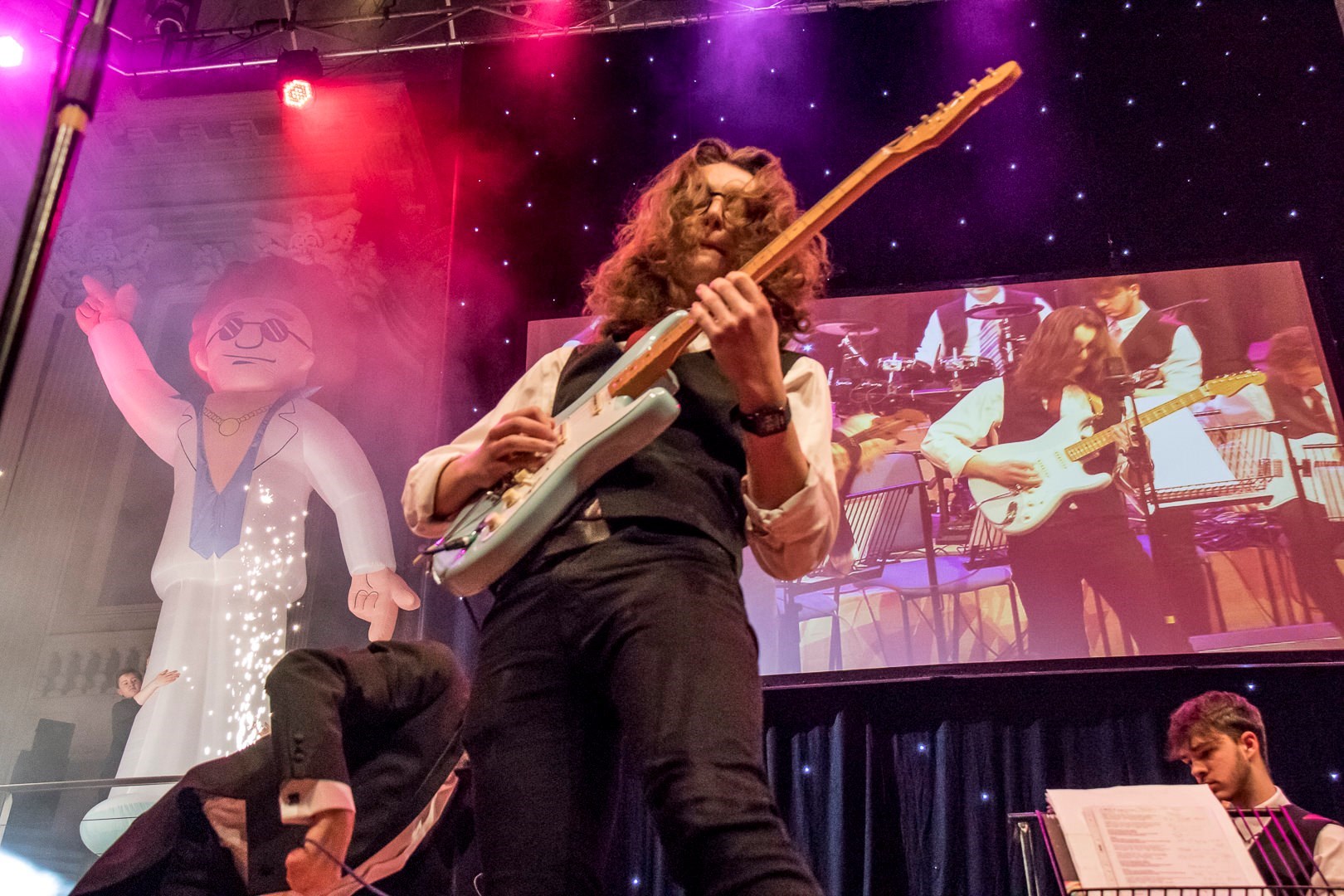
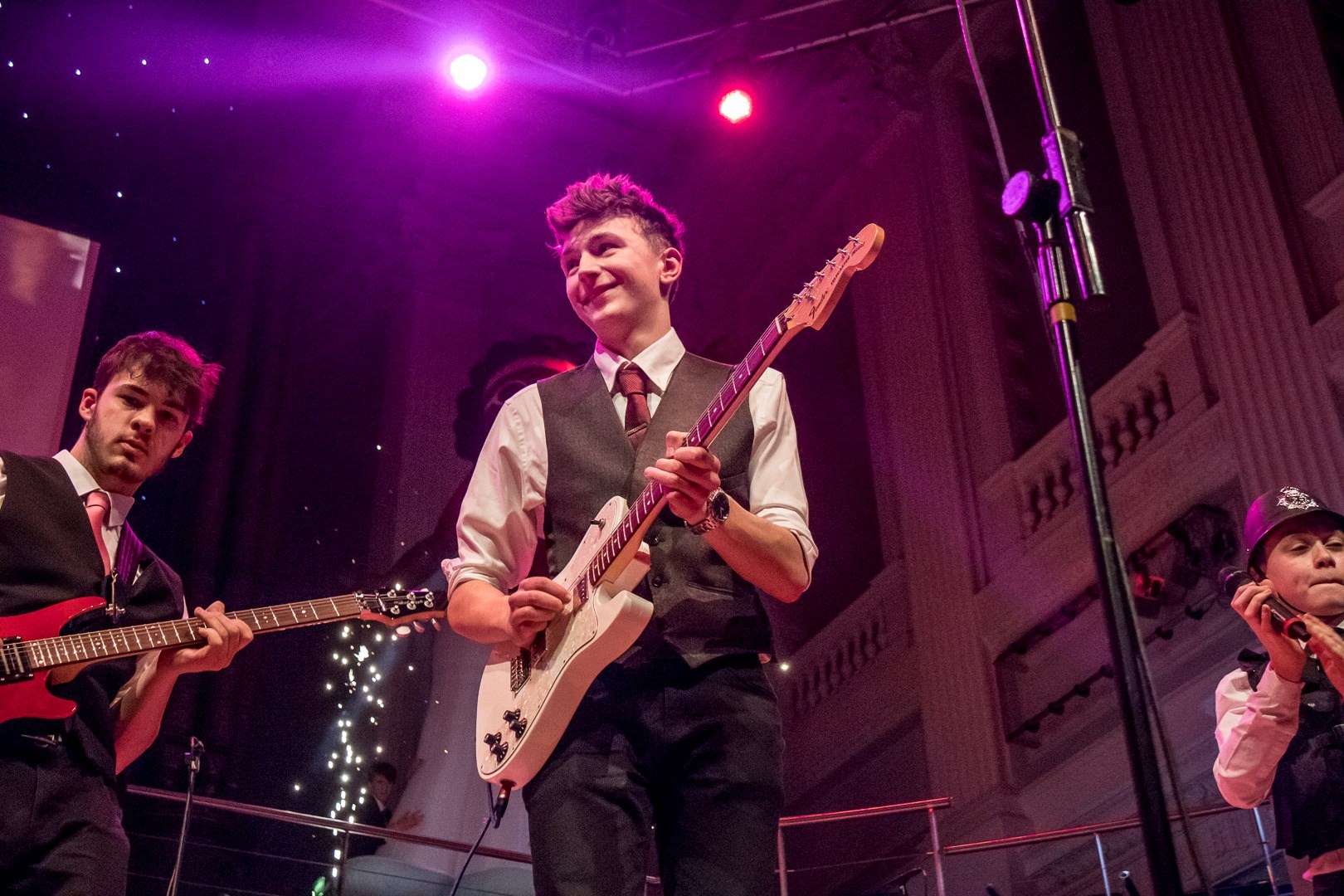
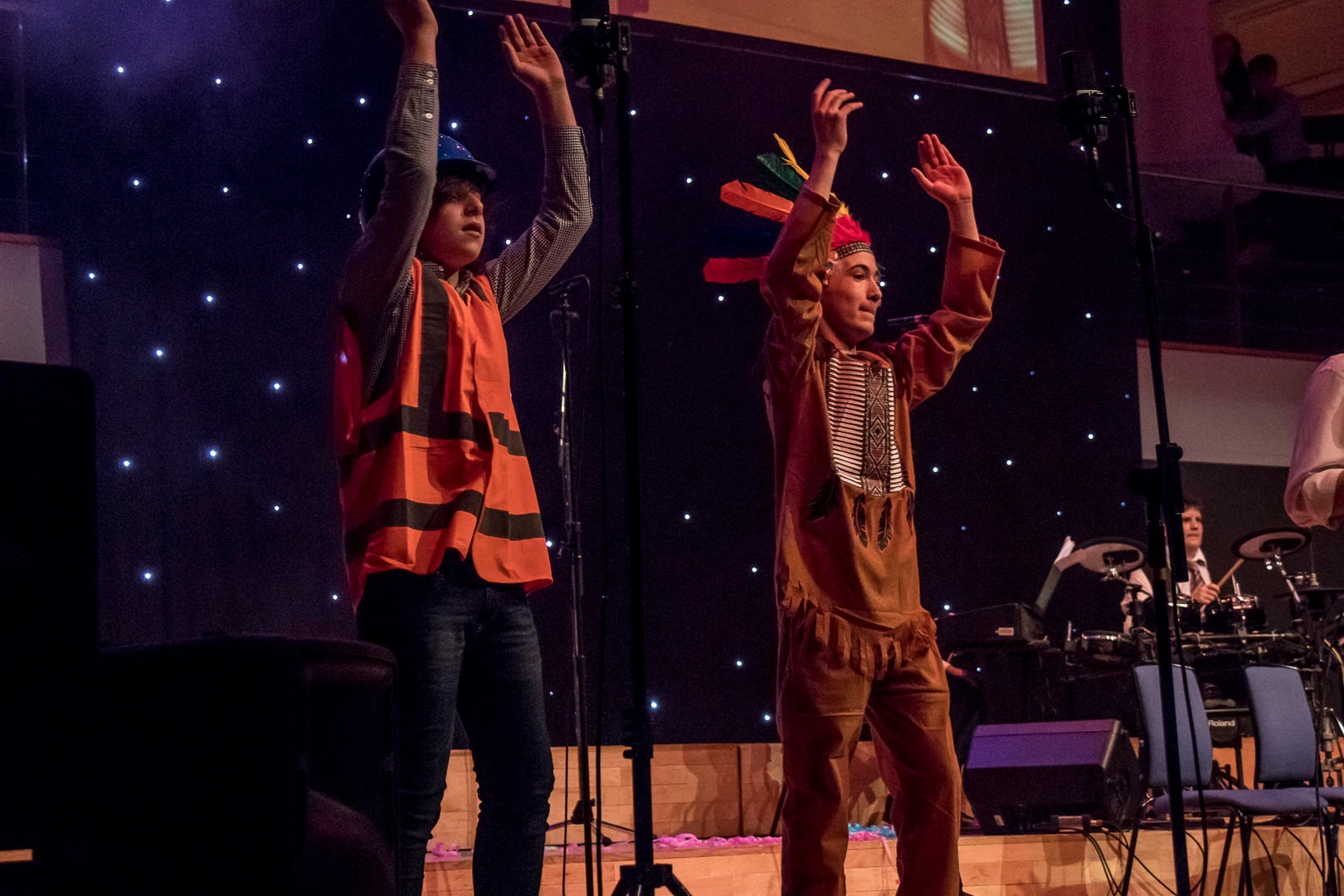
Instrumental Staff
These teachers are in the Department for a few hours each week. We currently have over 20 pupils receiving Instrumental tuition each week. Pupils are encouraged to take formal qualifications such as ABRSM and Rockschool.
-
Mr Herbert – Guitar / Bass
-
Ms Hodgetts – Flute
-
Mr Randle– Drums
-
Mr Hill – Clarinet / Saxophone
-
Miss Sheridan – Piano / Singing
Contact :-
- fmallinson@emmausmac.com (Music enquiries)
- chandley@emmausmac.com (Music finance)
Vision
Music Vision
The music team believes that every child should have the opportunity to be creative through music. They will experience a wide range of styles and genres. They will then use their skills and knowledge to compose and perform in small groups and on individual tasks. We want them to take a pride in their work whilst developing a love of music. Through enthusiastic teaching, exciting curriculum and “state of the art” equipment we want to encourage all Hagley pupils to achieve the best they can.
Progression
The KS4 Music course for Hagley is the V-Cert in Music Technology. This is a vocational course that links to progress 8. This exam is now in the second year of teaching and numbers of the course have doubled. To aid a smooth progression to this course and to develop the skills needed, every KS3 year will use music technology in at least one of the music modules. (please see the KS3 curriculum)
The Edexcel A level Music Technology course has been running at Hagley for many years and this year 100% of the students have gone onto study Music technology at degree level.
Music is part of the Arts Rotation team. This means that every child receives 39 lessons over each year.
The topics studied are:
Year 7
PERFORMANCE- Find Your Voice
Vocal work
Part songs / rounds / composition and arranging / group work
Keyboard skills
Keyboard techniques / Notation / Chords / Treble and Bass Clef
MUSIC TECHNOLOGY – Beat It!
Drum & Bass
Reading and composing using a variety of notation / Programming drum patterns /
Developing skills in using computer software / Mixing and selecting sounds and timbres
COMPOSITION- Musical Creation
Melody writing and Rhythm work
Performing and composing using tuned and un-tuned percussion / keyboard skills / simple improvisation/ Developing skills in using computer software / Mixing and editing using Logic
Year 8
12 bar Sequences and Riffs
Keyboard skills / 12 Bar Blues / developing improvisation skills / following notation / performing and composing riffs
Retro Game Music
Using computers to compose to music for a Retro Game / using the elements to create contrasting moods / working accurately with graphics, fitting the music to the action / developing skills in using computer software
Dr Who
Using computers to compose atmospheric music / understanding and composing using whole tone scale / understanding and using effects such as reverb and delay to enhance their composition / developing skills in mixing sound
Jig
Keyboard skills / understanding and composing using compound time / understanding the Jig structure / Using the computer to realize their composition / creating an authentic piece by their choice of tempo, instrumentation and textures
Year 9
PERFORMANCE- The Chord Lounge
These new aspects of knowledge build on the work studied in Year 8. The Chord Lounge will be revisited in this project.
Critical listening / Organization and planning / Interpersonal skills - Effective communication and teamwork. / Responding to dynamics and phrasing. / Responding to solos and improvisations in an ensemble. / Perfecting instrumental technique on a chosen instrument. / Playing extended chords and inversions. / Playing in time and as part of an ensemble. / Playing syncopated rhythms.
Understanding the setup of a band including, instruments, microphones, leads, mixing desks.
MUSIC TECHNOLOGY – Remix Time!
These new aspects of knowledge build on the previous work studied in Year 8. Knowledge from the “Mash it Up” module will be revisited in this module.
How to import and edit loops and audio stems / Plan and input the 3 contrasting sections using a mixture of pre-set loops, composed basslines and audio stems / Understand how to create texture in their piece by duplicating sounds, octaves and use of pan. / Understand and be able to use basic synthesis (ADSR) to refine their sounds and be able to save their own patches / Record their own audio part. Select correct interface, leads and set the gain correctly. / Understand features of EQ in production /Understand automation with regard to effect processing /Understand how to use a reference track to help the mixing process.
COMPOSITION- Freestyle
These new aspects of knowledge build on the work studied in Year 8. Knowledge from the Song Writing module will be revisited in this project.
Understand more complex compositional devices e.g. ostinato/key change/chromatic scale/discords/syncopation/compound time as appropriate
Know and use various structures / Know about different voices/instruments in various combinations / Understand dynamics/tempo/texture and how to use them / Understand 7th and diminished chords / Know about different genres of music
Year 10
What will I study?
Unit 01 Introduction to Music Technology and the Music Business
This unit is an introduction to the course modules and thew History and Development of Music Technology and the Music Business
- Learn about the various Roles within the Music Business (Marketing, Promotion, Se3lling and distributing Music)
- There will be an Exam style assessment
Unit 02 Using a Digital Audio Workstation
This unit will allow learners to develop skills in operating a Digital Audio Workstation (DAW) creatively using audio, MIDI, hardware and editing tools. Learners will create a musical project in response to a brief, reflecting industry skills.
- Create a musical project that will include MIDI and audio
- Review a completed musical project
This is similar to the Year 9 module on Remix Time.
Unit 03 Studio recording
- Plan a recording session in response to a given scenario
- Undertake a studio recording session
- Mix a multi-track recording
- Review their mixdown
This will include elements similar to the Year 9 module on Join my Band.
Unit 04 Creating music
Learners will develop skills to analyse stylistic elements of music and develop a piece of music based on a specific style. Learners will engage in a review of technical and creative processes.
- Understand the musical elements of a chosen style
- Create a piece of music in the style identified in learning outcome 1
- Review the musical piece
This is similar to the Year 8 module on the Performance arrangement.
There will be lessons to prepare the students for the External examinations to be sat in Year 11.
Year 11
Unit 05 Sound creation (L/507/5013)
- Learners will explore sound creation and apply their knowledge to a given brief. They will create and review their own original sound creation project.
- Plan and undertake the sound creation for a given brief
- Review their completed sound creation project
This is similar to the KS3 Technology modules – Beat it, Mash it Up! and Remix Time.
Examination Board: NCFE (Level 1/2 Technical Award in Music Technology)
Head of Department: Mr F Mallinson
Synoptic Assessment.
This is externally set and will take 17 hours to complete. It will be a combination of the 5 units studied over the course
The External Written examination will also take place in this year. This will be sat in the Summer term.
The course structure:

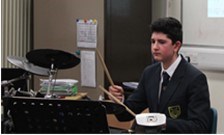
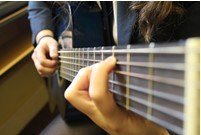
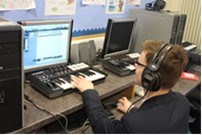
Key Stage 5
Students who opt for A level Music Technology will study the Edexcel specification:
SUBJECT: MUSIC TECHNOLOGY A Level
EXAMINATION BOARD: EDEXCEL
SYLLABUS CONTENT
AS + A level
Both courses are divided into 4 main sections;
Section 1, Recording 20% (9MT0/01)
A selection of 10 songs / artists are set by the board
Component 1: Recording
Research and preparation will include time spent researching one of the ten tracks to be recorded, listening to the original and deciding on what effects and processing have been used, preparing and rehearsing the ensemble to be recorded, checking and testing equipment, learning microphone technique and placement, testing levels and getting everything set-up and prepared ready for the actual recording process.
Your recording should:
- last between 2 and 2.30 minutes
- use a minimum of five tracks (3 Compulsory instruments and 2 additional ones)
- have a minimum of four tracks captured using microphones
- make use of overdub techniques
- use only live musicians, but keyboard parts may contain MIDI sequenced data or sampled loops
- be a noise-free stereo production with use of appropriate effects.
- Logbook and authentication forms must be fully completed.
Section 2, Composing 20% (9MT0/02)
Two audio samples are supplied by the board.
Component 2: Technology-based Composition
Creating, editing, manipulating and structuring sounds to produce a technology-based- composition.
Your composition should:
- Develop the two samples given by the board (Sept 19)
- Synthesis and sampling /Audio manipulation and creative effects must be included.
- Total time must be 2.30 minutes
- Logbook and authentication forms must be fully completed.
Section 3, Listening and Analysing 25% (9MT0/03)
Written examination 1Hour and 30 Minutes.
Component 3: Listening and Analysing (75 marks -25%)
Knowledge and understanding of recording and production techniques / principles in commercial recordings
The paper is split into A: Listening and Analysing (40 marks)
- 4 questions (10 marks each) A range of recordings from 1920 to the present day.
Section A will consist of four questions of 10 marks each, which may include multiple-choice, gap- fill, diagrammatic, short-open and open response questions using unfamiliar commercial recordings as a stimulus.
B: Extended Written Questions (35 marks)
- 2 essay questions (15 / 20 marks) One answer is a compare and contrast and the other links closely to the development of production techniques over time.
Section B will consist of two extended open response questions.
The first will be comparative and based on production techniques and effects processing used on two unfamiliar commercial recordings (15 marks).
The second will be based on one recording and ask the student to consider the wider musical context (20 marks).
Section 4, Producing and Analysing 35% (9MT0/03)
Written examination 2 Hours and 15 Minutes.
Component 4: Producing and Analysing (105 marks -35%)
In this practical paper, students will be provided with a CD of audio/ MIDI information
Students will correct and then combine the audio and MIDI material to form new tracks or parts from the material provided.
The paper is split into A: Producing and Analysing (85 marks)
- 5 questions related to the audio recordings on the CD.
Section A will consist of five questions that will include, spotting mistakes, correcting and manipulating synthesis problems, matching sounds, adding effects and demonstrating a selection of processors.
B: Extended Written Questions (20 marks)
- 1 essay question (20 marks) There will be an essay type question focusing on aspects of a music technology hardware unit.
Students will not be assessed on their instrumental skills although some practical performance expertise would be useful.
Students need an interest in a variety of different musical styles, basic ICT skills and a hard working attitude.
During the course students will be studying:
Recording Techniques.
Listening and analyzing popular music styles (1920 to the present day).
Use of multi effects/plug ins/sound samples and loops.
Sequencing Techniques.
Arranging skills / Composing.
MIDI techniques /Sampling.
History of Recorded Sound.
Production Techniques
ASSESSMENT DETAILS
Assessment is through continued coursework with the Recording and Composing being sent to an external examiner. This will be sent to the examiner around the middle of May.
.
SKILLS DEVELOPED
The music course enables students to develop skills in communication, improving own learning and performance, information technology, problem solving and working with others.
POSSIBLE CAREER OPPORTUNITIES
Advanced Level music is the stepping stone for further study of Music Technology or performing arts at Higher National or Degree Level. It can also help in a career in the music industry or in a technology/computer orientated career.
What will the lessons be like and what will I have to do?
The start of the course will build up a bank of skills in order to access the set coursework. There will be some theory lessons in the first half term but will be mixed with Practical tasks.
Tasks will be set on a weekly basis and these will need to be completed.
This course will require you to access the equipment and work independently away from the taught lessons. The coursework will not be able to be done in just the lesson time.
What did the students say about the last year’s course.
POSITIVE
Enjoyed the own Composition ”it gave us scope to try out new ideas and own thoughts”
Lots of help with all aspects of the course
Standard of equipment and “hands on” lessons linked closely with the Theoretical aspect of course.
Listening lessons were informative and lots of handouts.
IMPROVEMENTS
Being very precise in choosing sounds was hard
Recording takes a long time if performers are not well rehearsed
Varied activities for the listening lessons.
GENERAL OVERVIEW
The Course was very very enjoyable. It was Great!!
I enjoyed being creative and having the freedom to experiment with Sampling module.
Marking was frequent, constructive and gave top tips to improve. The Progress sheets had clear feedback and goals to help me focus on what I needed to do to reach the highest grades.
I loved the Recording, experiencing the studio and using all the cool bits of tech!!
The support that I received throughout the course was unbelievable. A joy from start to finish.
THIS COURSE WILL TAKE LOTS AND LOTS OF YOUR TIME.BE PREPARED AND FILL IN YOUR LOGS AS YOU GO. DON’T LEAVE IT TILL THE FINAL FEW WEEKS.
Extra-Curricular
We have a wide range of musical activities that run every week. We encourage all year groups and all abilities to get involved. These activities develop new skills that enhance and support instrumental lessons and our curriculum. Joining a musical activity is a fantastic way to feel part of a team, be creative, meet new friends and have fun!
There are regular concerts, gigs at local venues as well as the Pyramid concert and the primary tours.
Here is the current Music Extra curricular timetable.
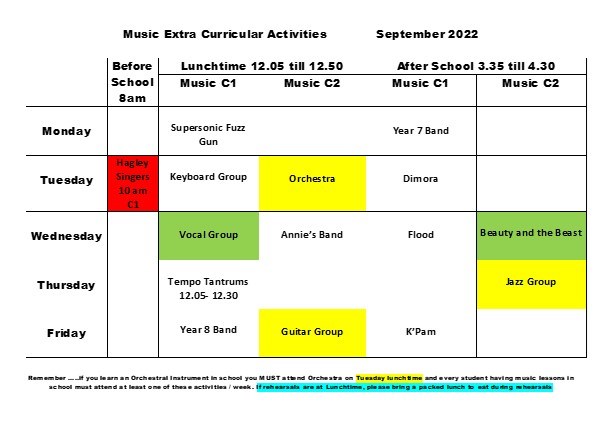
To enhance learning opportunities, the department organizes visiting musicians to come into school.
- International Concert Pianist, Richard Meyrick gave a Masterclass for 25 students.
- An early music ensemble gave a workshop for GCSE musicians.
- Woodwind students attended a workshop by James Galway.
- KS3 students have regular performances by a number of contemporary musicians, these have included The Wanted and The Hoosiers.
- Ensembles have opportunities to perform at various venues and develop their skills in a live forum
